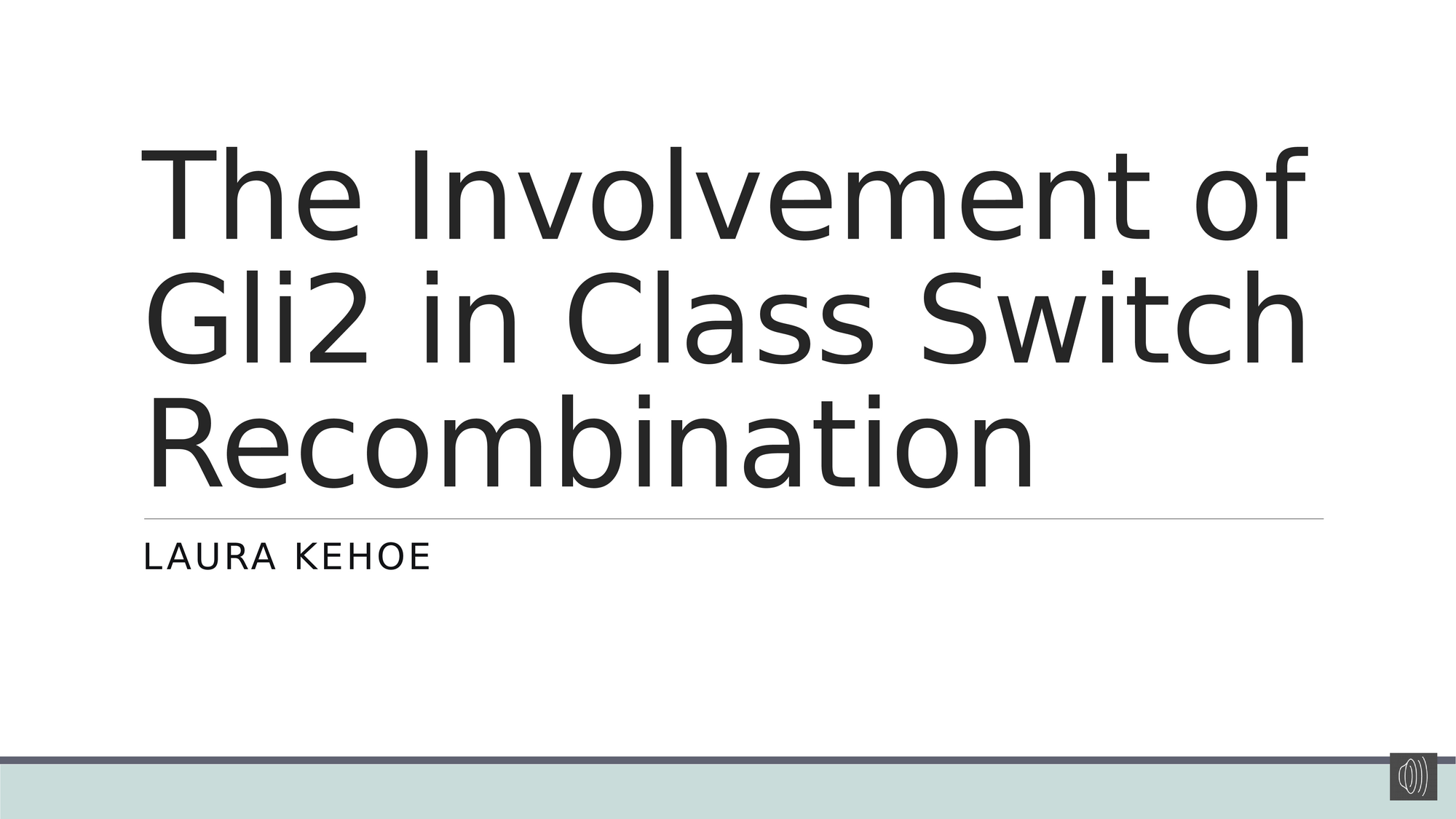Title:
The Involvement of Gli2 in Class Switch Recombination
Slideshow Presentation
Best viewed by downloading
Preview Converted Images may contain errors

Abstract
B cells are important because of their role in the immune system. What makes these cells affective is their ability to produce antibodies. There are five main classes of antibodies: IgM, IgG, IgE, IgA, and IgD. The various classes of antibodies ability to recognize different potential pathogens throughout the body. As B cells mature, they produce IgM, then the cell can respond to various signals and undergo class switch recombination (CSR). This is when the B cells switches from producing IgM to producing one of the other classes such as IgG. In general, IgM, IgG and IgA are good markers to look at to determine the rate of class switching because of the relative amounts produced.
Our lab has investigated Gli2, a protein commonly produced more in some cancers. This protein has been shown to modulate IgM secretion in malignant B cells. However, the role of Gli2 in normal B cell responses has not been studied. We found that Gli2 does not affect B cell development or basal Ig levels; however, in the absence of Gli2, there was more CSR from IgM to IgG upon stimulation. The goal of my project is to understand the role of Gli2 in B cells and determine if Gli2 plays a role in CSR.
To determine this, cells from wild-type mice or from mice which lack Gli2 expression in B cells were purified from spleens. The spleen is the site of the majority of B cell maturation B; therefore, B cells are easily obtained from the spleens by magnetic separation. Sorted B cells were stimulated with various proteins that induce CSR and is examined by flow cytometry. This technique uses fluorescent stains to analyze what individual cells are expressing. To date, we have performed a CSR assay on 8 mice per group and found an increase in CSR from IgM to IgG1 and a decrease in IgG2b, while IgG3 and IgA levels are unaffected. Future studies will be focused on investigating the role of Gli2 in B cell growth to determine if the increased IgG1 is due to increased cell growth in the absence of Gli2.
Authors
| First Name |
Last Name |
|
Laura
|
Kehoe
|
Leave a comment
Submission Details
Conference GRC
Event Graduate Research Conference
Department Biochemistry (GRC)
Group Oral Presentation
Added April 18, 2021, 5:39 p.m.
Updated April 18, 2021, 5:40 p.m.
See More Department Presentations Here